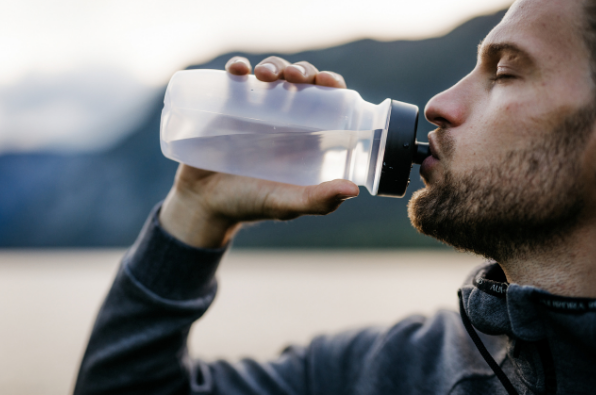Hydration’s Role in Health & Wellness
Did you know that up to 60% of your body is made up of water? It’s no surprise, then, that water plays a crucial role in maintaining overall health. On a daily basis, it’s recommended to drink about 3 liters of water, although this can vary depending on factors like age, climate, activity level, and medical conditions. Fruits and vegetables can also contribute to your hydration needs, ensuring your skin remains intact and youthful.
The Impact of Dehydration on Your Body
Dehydration can have serious consequences on various bodily functions, particularly in the brain. Symptoms such as memory loss, mood changes, and anxiety may occur when your body isn’t properly hydrated. Replenishing your water intake can help alleviate these issues and may even reduce the frequency of migraine attacks, although more research is needed in this area. For those trying to lose weight, replacing sugary beverages and carbonated drinks with flavored water has become a popular strategy. The good news? Drinking water helps boost metabolism and can support weight loss goals.
Hydration and Cardiovascular Health
Water also supports the health of your cardiovascular system. Dehydration can disrupt the balance of electrolytes in your blood, impacting heart and muscle function. Dark-colored urine is a clear signal that you need to drink more water. It’s essential to stay hydrated to keep your heart and muscles working optimally.
How to Stay Hydrated Throughout the Day
Making hydration a part of your daily routine can be simple and effective. Here are some easy tips to help you stay on track:
- Start your day with a glass of water: Make it a habit to drink water as soon as you wake up.
- Carry a water bottle: Having a bottle with you ensures you can hydrate wherever you go.
- Set reminders on your phone: Don’t forget to drink water, especially if you’re busy.
- Flavor your water: If plain water doesn’t appeal to you, try adding fruits like lemon, strawberry, or mint to enhance the taste.
Signs of Dehydration to Watch Out For
Recognizing the symptoms of dehydration early can help you take action before it becomes a serious issue. Some common signs include:
- Dark urine
- Excessive thirst
- Fatigue
- Headaches
- Dry tongue and lips
- Muscle cramps
Causes and Complications of Dehydration
While dehydration can be caused by a variety of factors, including fever, excessive sweating, and diarrhea, it can lead to serious complications like:
- Kidney failure: When your kidneys can't remove excess fluid from the blood.
- Heat cramps: Caused by excessive sweating and dehydration.
- Seizures: Due to an imbalance of electrolytes.
Conclusion: Prioritize Your Hydration
Staying hydrated is essential for maintaining overall health. Whether you’re combating fatigue, improving your skin, or supporting cardiovascular health, water is your body’s best friend. If you experience severe signs of dehydration, don’t hesitate to consult a doctor for professional guidance.
References:
7 Science-Based Health Benefits of Drinking Enough Water
Drinking water and your health
https://vitaminati.com/en/detoxing-on-a-budget-affordable-ways-to-cleanse-your-body/












